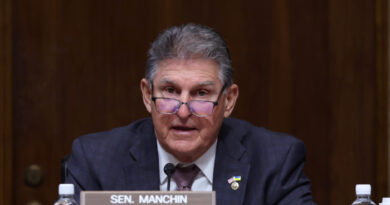Biden Rejects Legislation Aiming to Establish 66 New Judicial Positions
A lawmaker stated that the newly proposed positions would have helped alleviate the ‘judicial backlog’ affecting the country.
President Joe Biden vetoed a bill that sought to increase the number of judges in the United States, raising concerns about the “motivating force” behind the legislation.
Biden emphasized that the bill does not sufficiently address key issues, such as the allocation of new judgeships, stating that these matters need resolution before the establishment of permanent judgeships for life-tenured judges.
“[The bill] would generate new judgeships in states where Senators have opted to leave existing judicial vacancies open,” he explained. “This effort to maintain open vacancies indicates that concerns over judicial efficiency and caseload are not the genuine motivation for the current push to pass this bill.”
“The JUDGES Act is a just proposal with considerable bipartisan backing that would have established 66 judgeships over three presidential terms to tackle our judicial backlog,” he stated. “The President seems more focused on relieving his family members who have received due process than on addressing the needs of millions of ordinary Americans enduring years-long waits for their own due process.”
Democrats argued that the bill garnered bipartisan support in the Senate back in August when the outcome of the 2024 presidential election remained uncertain. With the recent election win by President-elect Donald Trump, they believe the bill is no longer equitable.
Representative Jerry Nadler (D-N.Y.) accused House Republicans of intentionally delaying the bill’s passage until after the presidential election. Had the bill been enacted, Trump would have had the authority to oversee the first judicial appointments.
Case Backlog
The legislation emerged in response to concerns regarding a surge of court cases.
By the end of March 31, 2023, there were 702,433 pending cases in federal district courts across the United States, averaging over 800 filings per judgeship.
Representative Darrell Issa (R-Calif.) remarked, “The shortage of federal district court judges combined with excessive caseloads has caused a significant backlog in our judicial system, leading to delays in cases and the pursuit of justice.”
In 1990, Biden, then serving as Senate Judiciary Committee chairman, sponsored legislation that created 85 new judgeships.
Additionally, 34 district court judgeships were created by laws enacted from 1999 to 2003. Since that time, according to Young, no new district judgeships have been approved by Congress.
“They would rather compromise the court system than permit Trump to appoint additional judges,” he claimed. “This decision dismisses any pretense of seeking bipartisan solutions and prioritizing the country’s best interests. With growing case backlogs causing delays and hardships, this reflects a cynical and unfortunate moment for Biden and his supporters.”





